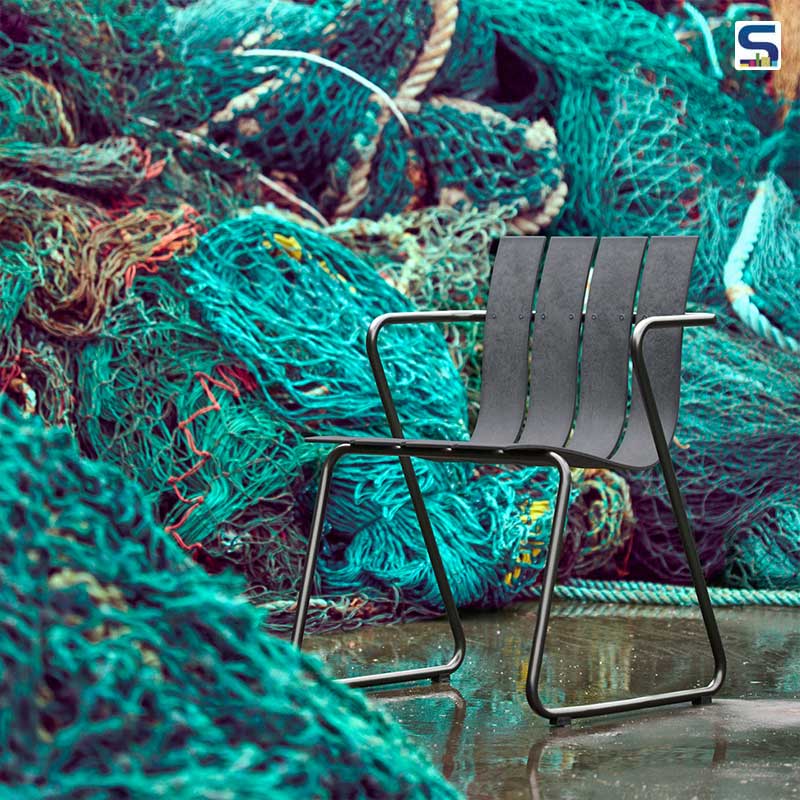
As we are facing a global recycling crisis with waste plastics filling the oceans and being dumped carelessly on land and blown or washed into the sea, Danish design brand Mater Design has taken action in regards to improving the environment. By reimagining its classic 1955 Ditzel design by Joergen and Nanna Ditzel in ocean waste plastic, Mater Design has launched its Ocean Collection featuring a new table and chair range.
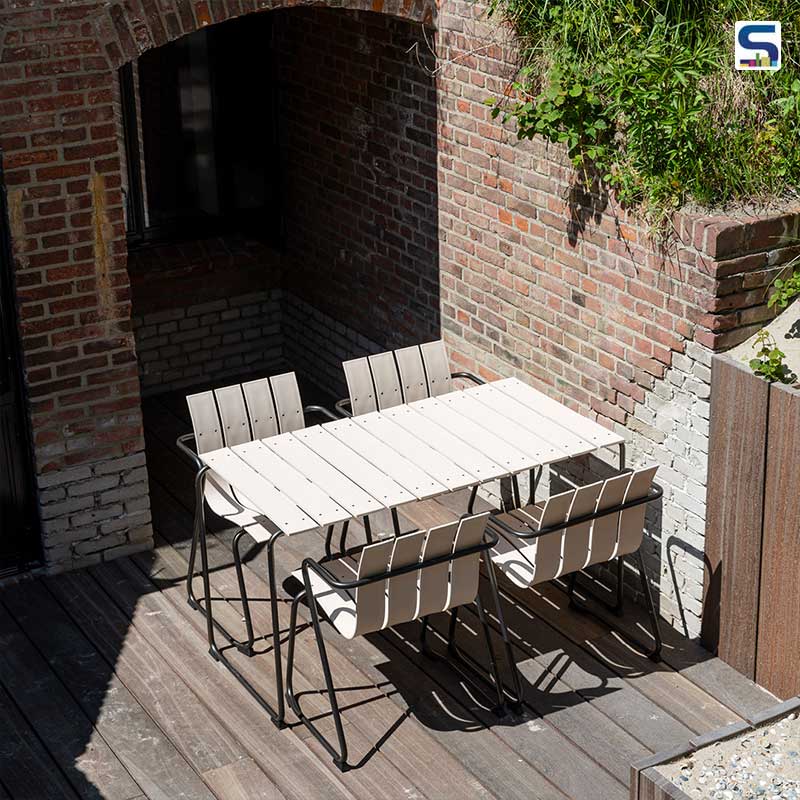
Much like the renowned designer duo, who pretty much used organic and innovative materials to create the design, Mater Design aimed to keep up the legacy by helping tackle the issue of ocean plastic pollution. To achieve the United Nations Global Goals for Sustainable Development, Mater Design collaborated with Plastix, one of the only mechanical recycling utilities in the world.
The Danish cleantech company, Plastix, transforms an extensive disposal problem of marine polluters such as discarded fishing nets, trawls, ropes and other post-use plastic waste fractions into valuable recycled plastic raw materials called Green Plastics. The fishing nets are carefully sorted, analysed and cleaned before they are transformed into pellets. The Green Plastics are later liquified and injected into a mould, and are turned into flexible slats, thereby creating a comfortable seating experience.
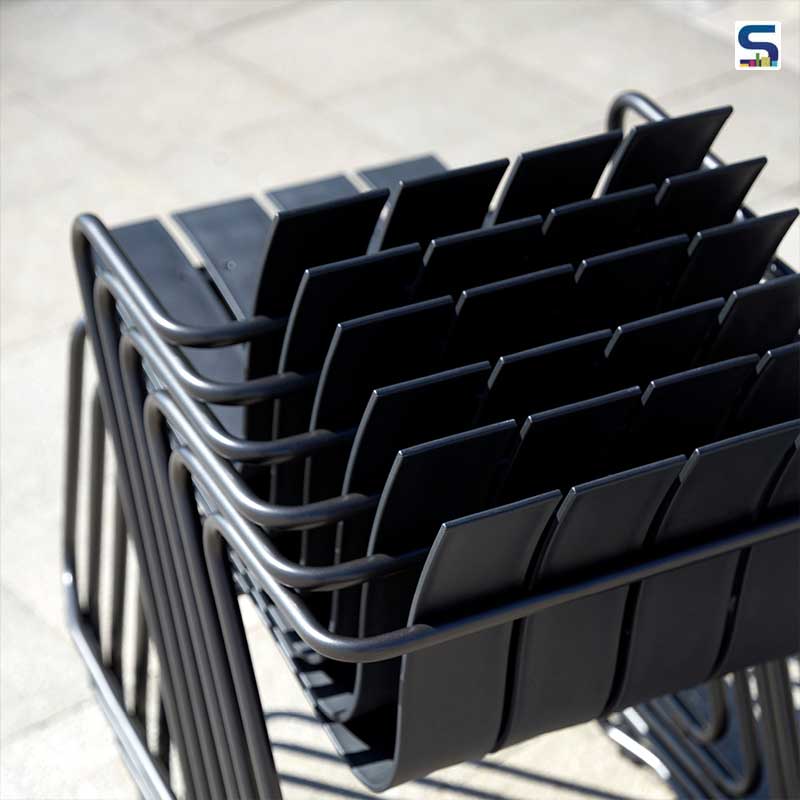
The collection is a new innovative business model that motivates fishermen across the world to dispose of their discarded fishing nets at the only recycling plant for fishing nets in the world, which is located in Denmark. And in return, pay them a fair value for this scattered material, which usually gets dumped into the ocean.
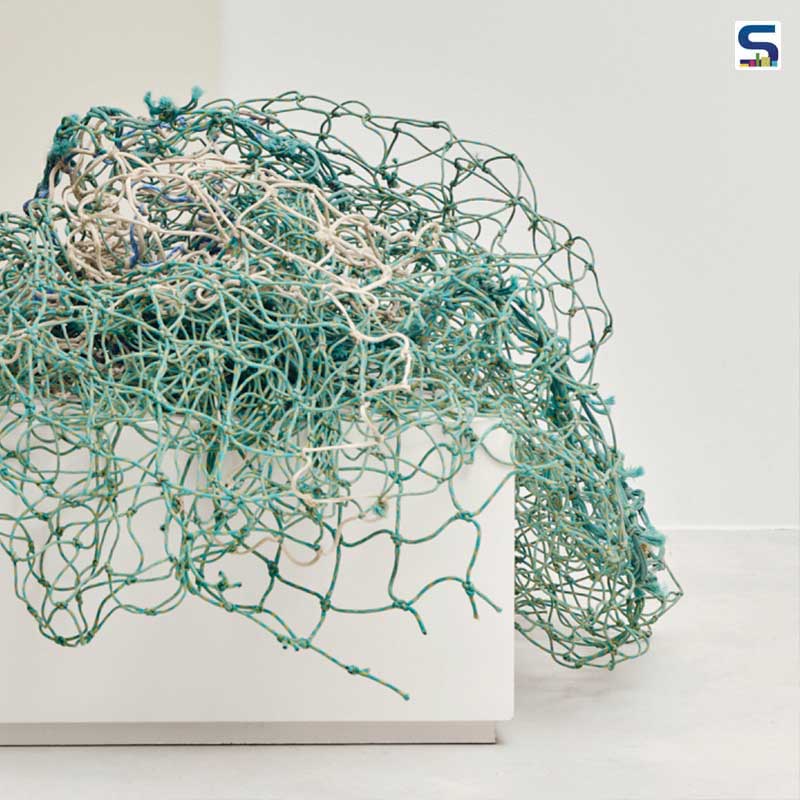
One Ocean chair uses nearly 960 g of pollutive ocean plastic waste. According to Hans Axel Kristensen, Founder and CEO, Plastix, “While 1 kg of recycled plastics raw material saves nearly 1.7 kg of CO2, a single Ocean chair saves 1.6 kg of CO2 emissions saving compared to virgin equivalents – demonstrating a CO2 emissions, saving up to 82 per cent.”
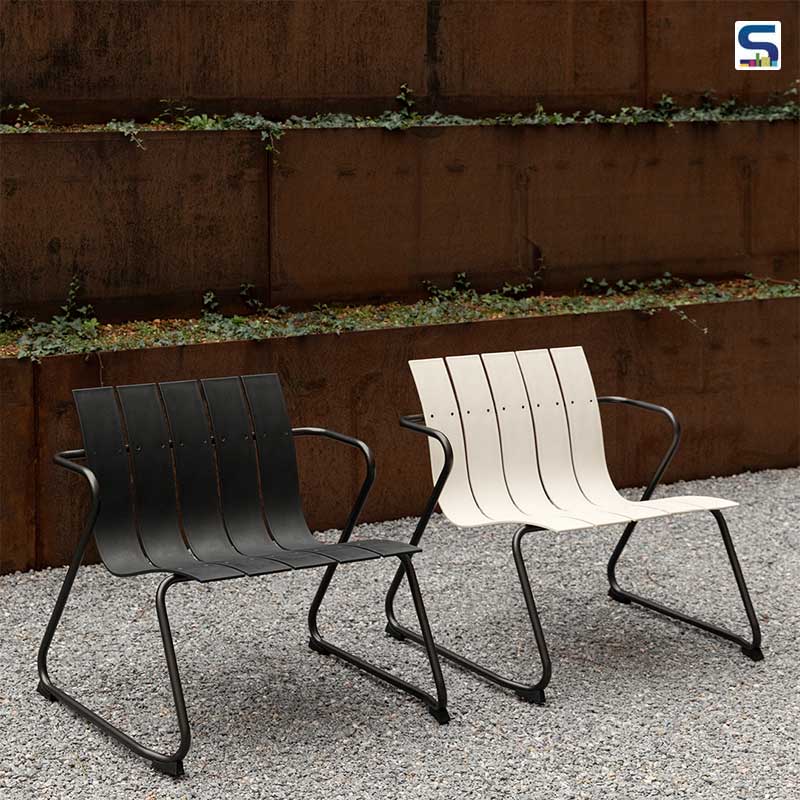
The Ocean Collection represents sustainable and innovative thinking. It is characterized by its light structure with repeated slats and metal frames that are combined into a reimagined table and chair collection in ocean waste plastic.
Image credits: Mater Design